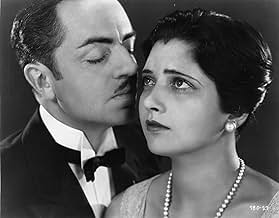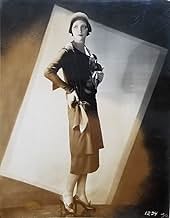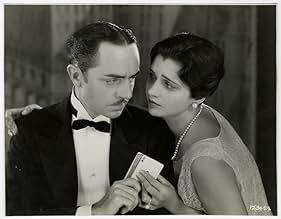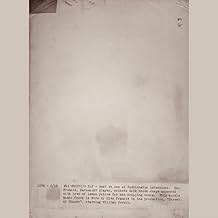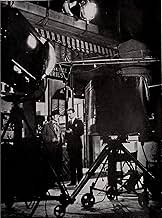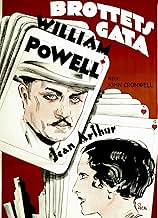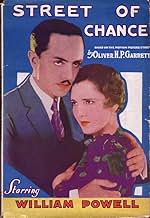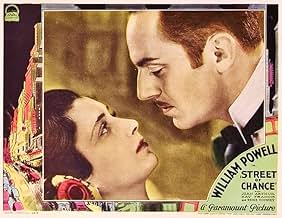IMDb RATING
6.4/10
456
YOUR RATING
A big-time, but honest gambler has to prevent his younger brother from following in his footsteps, and taking up gambling.A big-time, but honest gambler has to prevent his younger brother from following in his footsteps, and taking up gambling.A big-time, but honest gambler has to prevent his younger brother from following in his footsteps, and taking up gambling.
- Nominated for 1 Oscar
- 3 wins & 1 nomination total
Oscar Apfel
- Bartender
- (uncredited)
G. Pat Collins
- Police officer
- (uncredited)
John Cromwell
- Imbrie
- (uncredited)
Gordon De Main
- Gambler
- (uncredited)
Jack Luden
- Holland House Hotel Clerk
- (uncredited)
William H. O'Brien
- Waiter
- (uncredited)
Broderick O'Farrell
- Gambler
- (uncredited)
Featured reviews
When, many moons ago, I interviewed director John Cromwell for an article I was preparing on the first big gangster-film star of the late Twenties/early Thirties, George Bancroft, I mentioned STREET OF CHANCE (Paramount; 1930) to him as an aside, it not containing Bancroft. His initial response was to confuse its genesis with gambler Nicky Arnstein, who, if I recall correctly, was married to Fannie Brice; but upon my putting forth Arnold Rothstein as the more likely source, he agreed. Arnstein was a gambler and apparent scoundrel; Rothstein also a gambler albeit far more notorious, infamously credited with having fixed a baseball World Series; his shooting death in 1928 was never solved. In STREET OF CHANCE, the shooting of the William Powell gambler is implied without being shown; his dying words, given in an ambulance rushing him to a hospital in response to an attendant's bet that he'll live, signals the film's final fadeout, these being, "You lose." When I complimented the director on this powerful, yet understated finale, he modestly responded something like, "Well, that's the kind of thing we were trying to do then." If, as John implied, such creativity was the order of the day, I've seen scant examples worthy of this one! Paramount remade the film in 1937 as HER HUSBAND LIES, starring Ricardo Cortez as the ill-fated gambler. A good little film, but lacking the tour-de-force quality engendered by the original which, sad to say, is a virtually forgotten motion picture.
Regards, Ray Cabana, Jr.
Regards, Ray Cabana, Jr.
Unlike a lot of very early talkies, this was made by a director for whom the introduction of sound didn't make him forget how to make films. It's clearly not as technologically advanced as pictures made just a year later but it's a remarkably professionally executed and well acted film.
Like the previous picture John Cromwell made for Selznick, THE DANCE OF LIFE, this also has none of those awful traits which blighted the very early talkies. It's dynamic, it's realistic and its dialogue feels natural. Scenes are allowed to develop and play out - there's none of that: switch the camera on - say the lines - switch the camera off technique common in say some Warner Brothers pictures where every foot of celluloid had to be accounted for. You're given the luxury to fully absorb what you're seeing - and indeed hearing. Such a pace could in a lesser movie result in a static, talky meandering malaise but fortunately this film's lively script and realistic characters keep your interest.
In an era of often simplistic stories, this is a surprisingly mature and intelligent offering. It's a serious and somber film about serious and somber issues but it successfully manages to distill all of that neatly into ninety minutes. Many years later Warners tackled the problem of gambling with its Edward G Robinson vehicle, DARK HAZARD. That had a much more light hearted approach which made it more accessible but although this isn't as enjoyable - you'll not smile much watching this - it's just as engrossing.
It's a real revelation to see William Powell not playing the usual debonair sophisticated cool guy. For a change, he's a somewhat damaged and unpleasant character but William Powell of course is just so likeable you're immediately on his side. The one loose wheel in this picture is, as is so often the case, Kay Francis. She was pretty good in a few films but her default affected acting style, gazing wistfully into the distance to speak her lines feels out of step with the rest of this film. I don't think she was quite ready for a lead part just yet in her career.
It's a good film, it's entertaining and it skilfully builds up the tension to an astonishing level towards the end but it's perhaps a film you appreciate more than you actually enjoy.
Like the previous picture John Cromwell made for Selznick, THE DANCE OF LIFE, this also has none of those awful traits which blighted the very early talkies. It's dynamic, it's realistic and its dialogue feels natural. Scenes are allowed to develop and play out - there's none of that: switch the camera on - say the lines - switch the camera off technique common in say some Warner Brothers pictures where every foot of celluloid had to be accounted for. You're given the luxury to fully absorb what you're seeing - and indeed hearing. Such a pace could in a lesser movie result in a static, talky meandering malaise but fortunately this film's lively script and realistic characters keep your interest.
In an era of often simplistic stories, this is a surprisingly mature and intelligent offering. It's a serious and somber film about serious and somber issues but it successfully manages to distill all of that neatly into ninety minutes. Many years later Warners tackled the problem of gambling with its Edward G Robinson vehicle, DARK HAZARD. That had a much more light hearted approach which made it more accessible but although this isn't as enjoyable - you'll not smile much watching this - it's just as engrossing.
It's a real revelation to see William Powell not playing the usual debonair sophisticated cool guy. For a change, he's a somewhat damaged and unpleasant character but William Powell of course is just so likeable you're immediately on his side. The one loose wheel in this picture is, as is so often the case, Kay Francis. She was pretty good in a few films but her default affected acting style, gazing wistfully into the distance to speak her lines feels out of step with the rest of this film. I don't think she was quite ready for a lead part just yet in her career.
It's a good film, it's entertaining and it skilfully builds up the tension to an astonishing level towards the end but it's perhaps a film you appreciate more than you actually enjoy.
In this film, the always debonair William Powell plays a businessman leading a double life as "Natural" Davis, an elite gambler with a penchant for winning because he "knows the percentages." He deals with gangsters and can summon up toughness when he needs to, but he also has personal integrity and treats people with fairness, at least, per his world's code. He's thus another example the common (and rather dubious) film trope of a guy who's operating outside the law, but lives by a moral code and is established as virtuous anyway. Here that's somehow true even when we see him order another gambler to be murdered because he's caught him stealing from him. Naturally, the violence isn't depicted.
Trouble comes to Natural Davis in two forms: (1) his wife (Kay Francis) is fed up with his late nights and threatens to call it quits, and (2) his little brother (Regis Toomey) comes to town looking to gamble himself, not knowing that the legendary Natural Davis is his own brother. Natural tries to do the right thing on both fronts, that is, to make drastic changes to preserve his marriage, and to attempt to dissuade his brother from the sordid life of gambling. His idea is a little trickery to do the latter, leading to a pretty fine scene of the brothers in a high stakes poker game together.
The film is certainly stronger towards the end, but it's a little mechanical getting there, stretching its simplistic plot out to fill the runtime. It's not clear how this nominated for a Best Writing Oscar, but 1930 was not a particularly strong year for films, with filmmakers still adapting to sound (the following years up to the end of the pre-Code era are certainly better). Regardless, from where I sit, Kay Francis and Jean Arthur (who plays the brother's wife) were largely wasted, their characters mostly just planets in orbit around Powell's. There is drama leading to a great final line from Powell, but the story line for the brother was unsatisfactory because it seemed far too tidy (wow, cured just like that, despite the temptation on the train!).
With that said, the film is worth seeing if you're a fan of the stars, and there were also various little things from the era that caught my eye. Mostly these are shots in New York, including the light streaming through the windows of Grand Central Station, and the big billboards for James J. Walker, a Tammany Hall mayor who was forced to resign a couple of years later. I also liked the neon sign advertising Spider-Web Hosiery in the background of the scene Powell has with Arthur. Lastly, it was interesting to see the swastika on some of the poker chips, but while the Nazis had already appropriated the symbol by this time, it appears these types of chips had been made for decades in America, and mercifully no fascist sympathies were being subtly expressed.
Trouble comes to Natural Davis in two forms: (1) his wife (Kay Francis) is fed up with his late nights and threatens to call it quits, and (2) his little brother (Regis Toomey) comes to town looking to gamble himself, not knowing that the legendary Natural Davis is his own brother. Natural tries to do the right thing on both fronts, that is, to make drastic changes to preserve his marriage, and to attempt to dissuade his brother from the sordid life of gambling. His idea is a little trickery to do the latter, leading to a pretty fine scene of the brothers in a high stakes poker game together.
The film is certainly stronger towards the end, but it's a little mechanical getting there, stretching its simplistic plot out to fill the runtime. It's not clear how this nominated for a Best Writing Oscar, but 1930 was not a particularly strong year for films, with filmmakers still adapting to sound (the following years up to the end of the pre-Code era are certainly better). Regardless, from where I sit, Kay Francis and Jean Arthur (who plays the brother's wife) were largely wasted, their characters mostly just planets in orbit around Powell's. There is drama leading to a great final line from Powell, but the story line for the brother was unsatisfactory because it seemed far too tidy (wow, cured just like that, despite the temptation on the train!).
With that said, the film is worth seeing if you're a fan of the stars, and there were also various little things from the era that caught my eye. Mostly these are shots in New York, including the light streaming through the windows of Grand Central Station, and the big billboards for James J. Walker, a Tammany Hall mayor who was forced to resign a couple of years later. I also liked the neon sign advertising Spider-Web Hosiery in the background of the scene Powell has with Arthur. Lastly, it was interesting to see the swastika on some of the poker chips, but while the Nazis had already appropriated the symbol by this time, it appears these types of chips had been made for decades in America, and mercifully no fascist sympathies were being subtly expressed.
This was quite enjoyable on a few levels. The lead actors in general has good strong performances, with Kay Francis having a few bad scenes. I blame the director for choosing those because other scene with her were totally believable. At first the story seemed a little confusing but quickly was understandable. A couple favorite scenes of mine were where William Powell finishes talking to Kay Francis and then walks out. Most films of the time would have cut the moment he walked out, but the camera kept rolling and we saw Francis slump down in dispare. The other favorite was the top down card scene towards the end. Overall, I would mainly recommend this to fans of the Thin Man series or other serious "black and white fans." It's definitely a hidden gem.
'Natural' Davis (William Powell) is a respected gambler who follows a ruthless code of honour with those who cheat against him. His wife Alma (Kay Francis) wants to divorce him because of his addiction and lifestyle but they agree on a reconciliation and 2nd honeymoon together and 'Natural' promises to give up gambling. However, his plans change when his brother 'Babe' (Regis Toomey) arrives in town...............
This is a well acted film with William Powell very good in the lead role and Kay Francis a little irritating at times with her facial over-emoting. However, Powell carries the film and pulls it into the "good" category. It has a slightly downbeat ending.
This is a well acted film with William Powell very good in the lead role and Kay Francis a little irritating at times with her facial over-emoting. However, Powell carries the film and pulls it into the "good" category. It has a slightly downbeat ending.
Did you know
- TriviaThe Alfred Hitchcock Hour (1962-1965) remade this story under the title of "A Piece of the Action" starring Gig Young and Robert Redford. It was the premier program of the show.
- ConnectionsFeatured in David O. Selznick: 'Your New Producer' (1935)
- How long is Street of Chance?Powered by Alexa
Details
- Runtime
- 1h 15m(75 min)
- Color
- Aspect ratio
- 1.20 : 1
Contribute to this page
Suggest an edit or add missing content

